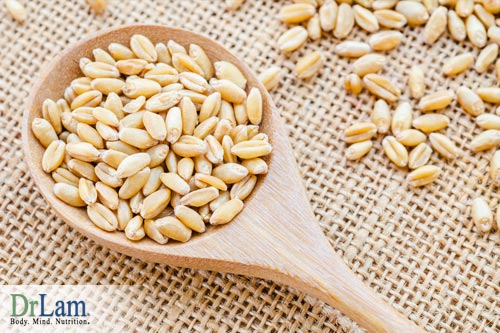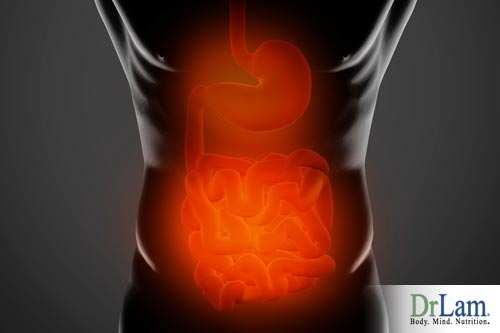
 Your might have heard about how important it is to have a healthy gut and the importance of microbiomes. However, most people don’t see the correlation between your gut and how well you sleep. Evidence has been shown that gut microbiota is able to influence sleep patterns, awake times and your circadian rhythm. An irritated bowel can lead to gut dysfunction and even throw off your sleep patterns. This is one of the many reasons, why a healthy gut is so important to your health. A bowel that is irritated leads to the neurotransmitters affecting your sleep. They are thrown off balance.
Your might have heard about how important it is to have a healthy gut and the importance of microbiomes. However, most people don’t see the correlation between your gut and how well you sleep. Evidence has been shown that gut microbiota is able to influence sleep patterns, awake times and your circadian rhythm. An irritated bowel can lead to gut dysfunction and even throw off your sleep patterns. This is one of the many reasons, why a healthy gut is so important to your health. A bowel that is irritated leads to the neurotransmitters affecting your sleep. They are thrown off balance.
There are two types of insomnia this could affect: sleep onset insomnia which is where you have trouble falling asleep, and sleep maintenance insomnia, where you frequently wake up in the middle of the night for no reason at all. These both can be related to irritated bowel syndrome or gastric problems. You see, there is a direct relationship with your gut and your central nervous system where the gut sends and receives signals from the brain. Several hormones and neurotransmitters are key to healthy sleep patterns. Your intestinal microbiome produces and distributes some of these same transmitters which help regulate sleep and mood. This makes having the right amount of probiotics and enzymes crucial to stabilizing your gut.
Sometimes all it takes is simple lifestyle changes, like sleeping better, that will alleviate and even fix a bowel that is irritated. However, keep in mind that you are not trying to find quick fixes to the problem but more of a permanent solution. If lifestyle changes are not solving the problem you may have to look into talking to your physician. A doctor can help you with medication, supplements and even give you a special diet in order to really help you feel better overall.
Probiotics and yogurt like kefir can help with the microbial flora in your gut in order to maintain a healthy balance. A healthy balance of this will aid in a better sleep overall and less problems within your gut.
Here are other reasons for dietary changes:
Dairy can be a big trigger that irritates a bowel. It is more than just being lactose intolerant. The problem is that dairy products are high in fat and that can really flare up your bowel. Keep in mind fats are one of the easier foods to identify as a problem, but not always. Try to replace dairy products in your diet with yogurt or kefir. Or try to use an enzyme that will help break down lactose and the fat in dairy. More times then not it is just better to avoid dairy altogether. Be sure though that you are still getting enough calcium in your diet.
 Fiber can be good or bad. In the long run, fiber will reduce constipation, however, it could also make you gassy, bloat, or even cramp up. Choose fibers that are whole grains or from fruits, beans and vegetables. Keep in mind that soluble fibers are better for you while insoluble fibers can cause a lot of problems and mostly will irritate your bowel further.
Fiber can be good or bad. In the long run, fiber will reduce constipation, however, it could also make you gassy, bloat, or even cramp up. Choose fibers that are whole grains or from fruits, beans and vegetables. Keep in mind that soluble fibers are better for you while insoluble fibers can cause a lot of problems and mostly will irritate your bowel further.
One of the worse trigger foods in IBS is foods that are greasy or have a high fat count. Foods with high fat content can increase intestinal contractions and trigger a gastrocolic reflex, which will increase your urge to defecate right after a meal. Due to the sensitivity of your digestive tract it’s best just to avoid these foods altogether.
It’s extremely important to get enough fluids when you are suffering with IBS. However, some fluids are better than others. Water is probably the most beneficial, it aids in keeping the stool moist and gut motility. Other good options include: probiotic drinks, dairy alternatives, ice tea, cranberry juice, smoothies and green juices. It’s important to avoid drinks that are highly carbonated such as soda and some alcohol. And while some people say certain alcohols can be beneficial it’s recommended that you avoid all alcohol since it is not known which will flare up your gut specifically. Ample fluids will promote a healthy gut and can improve sleep.
No matter what you do, if you are having problems with an irritated bowel, you really need to make some lifestyle changes. Your overall health and sleep patterns depend on it. Not getting enough sleep, or waking up frequently, will affect your mood and health over time. So you need to look into diets, nutritional coaching and talking to a physician or specialist before the problem gets out of hand.

Adrenal fatigue syndrome (AFS) is a condition that is caused by stress being put on your adrenal glands. It can be quite debilitating if not properly diagnosed. Adrenal fatigue syndrome is caused by stress factors on the body, these stressors can be both physical or mental. Some of these stressors include: nervous system problems, immune system problems, deregulation of the hypothalamic-pituitary-adrenal axis, and even metabolic/nutritional problems. There are many signs and symptoms of Adrenal Fatigue including:
While these are signs of adrenal fatigue syndrome, the underlying factor is stress. Your adrenal glands are your body’s stress relief organs. If the body signals stress, these glands will make cortisol. However, what ultimately happens is that if there is an overload in stress, it will cause you to have lower levels of cortisol overtime and eventually can lead to adrenal failure. The adrenal glands are overworked.
 Adrenal Fatigue Syndrome and Irritated Bowel Syndrome can occur simultaneously. When your body and digestive tract slow down due to adrenal fatigue, gut motility slows down as well, causing your bowel to be irritated. Typically this will cause continued constipation rather than diarrhea. In fact, most of the time when you are constipated you will be under a lot of stress.
Adrenal Fatigue Syndrome and Irritated Bowel Syndrome can occur simultaneously. When your body and digestive tract slow down due to adrenal fatigue, gut motility slows down as well, causing your bowel to be irritated. Typically this will cause continued constipation rather than diarrhea. In fact, most of the time when you are constipated you will be under a lot of stress.
It is important to know what the root cause of the irritated bowel is. Often times adrenal fatigue is a trigger that is overlooked. However, if the adrenals are weak, irritated bowel syndrome issues will become more common. The best approach, for long term healing, is to achieve healthy adrenal glands. The biggest problem though is that products that can help your adrenals can further cause bowel irritation, such as green tea, ginseng and even licorice. Digestive enzymes, magnesium and probiotics can help IBS. A good combination of DHEA, pantethine and glutamine will achieve a healthy gut, good microbial flora, and could even help you sleep better at night.
Keep in mind that the only way to really heal IBS, that is related to adrenal fatigue, is by working toward adrenal health. You may be able to solve some of the issues that come with an irritated bowel. However, if your adrenal glands are not working as they should, your only remedy the situation for a little while before you start seeing problems again. So, it’s important to remedy the underlying causes. Many conventional medical physicians may not see how adrenal fatigue is affecting your bowels. So it is also a good idea to talk to a specialist who understands adrenal fatigue syndrome.
First, let us take a look at the NeuroEndo Metabolic (NEM)Stress Response. Your body responds to various stressors, that it comes in contact with, whether they are physical such as pain or mental, such as emotions. Much of the how we react and control stress is from the hypothalamic-pituitary-adrenal (HPA) hormonal axis. The brain receives stress signals from our senses or emotions and converts them into a chemical messengers called neurotransmitters and hormones. If the HPA axis is not functioning properly, or you do not have proper levels of cortisol within your body (the hormone that aids in stress), your body will not handle stress very well at all. This is quite evident when adrenal fatigue is in place.
The NEM stress response helps in a variety of ways. When it comes to irritated bowel syndrome, the two big key factors are detoxification and inflammatory responses. Gut health is important for all of your digestive processes including a healthy bowel. Any gastrointestinal disorder will affect other areas of the digestive system including the stomach, small intestine, large intestine, liver, gallbladder, and pancreas. So, it is important to remedy the situation. If you're irritated bowel syndrome is, in effect, due to an underlying adrenal fatigue problem, then you need to remedy the AFS in order to aid in a healthy gut. The one thing that the NEM stress response models shows us is that one area of the body will affect another area of the body. That is exactly why it is important to get to the underlying issue at hand.
 Take a second to look at the similarities between adrenal fatigue syndrome and irritated bowel syndrome. There are a lot of similar signs and symptoms. This is because, like I said earlier, typically they occur simultaneously in the body. The symptoms overlap because one is affecting the other. You have to heal the body from the source in this case by alleviating stress on the adrenal glands.
Take a second to look at the similarities between adrenal fatigue syndrome and irritated bowel syndrome. There are a lot of similar signs and symptoms. This is because, like I said earlier, typically they occur simultaneously in the body. The symptoms overlap because one is affecting the other. You have to heal the body from the source in this case by alleviating stress on the adrenal glands.
The right enzymes and supplements will help your irritated bowel, however, if they add stress to the adrenals it may backfire. Also, supplements that aid in adrenal fatigue syndrome may cause irritation to your gut. So it is important to find a happy medium between the two. Most probiotics, kefir and digestive enzymes will help. However, be sure to talk to someone who understands adrenal fatigue syndrome and how it relates to irritated bowel syndrome. Your body’s digestive health is a delicate balance, it’s important to understand all the facts and not to self-treat unless you are fully aware of the pros and cons.
Overall, properly maintaining microbial flora in your gut, changing your lifestyle habits, and acknowledging the issues that can be from adrenal fatigue syndrome, you can begin to have a healthy gut that will promote better sleep. Overall you will have better metabolic function. However, ignoring that AFS could be a problem treating your IBS, is like putting a bandaid over the real issues and not a lasting solution. It’s always important to consult your physician or a licensed nutritionist before going on any special diets. Doing so will make sure you do not have any adverse reactions. Look into adding more water, probiotics, and kefir into your diet and see if that helps.
© Copyright 2017 Michael Lam, M.D. All Rights Reserved.
